|
Karmen Špiljak is a Slovenian-Belgian writer with a taste for dark and twisty tales. Her short fiction has been awarded and anthologised. Her as yet unpublished thriller was shortlisted and received an honourable mention on 'The Black Spring Crime Fiction Prize 2020. Karmen's book, Add Cyanide to Taste, will come out in September, but it is available for pre-order on all platforms.
Q: Can you tell me a bit about yourself and your writing? When I first started to write poems, at the age of six or seven, my dad thought I was copying the text from a book. Eager to prove myself, I wrote a poem about him. I included enough details about my dad, so there could be no mistake who’d written it. My teacher was excited and must have sent it off to a local newspaper. A week or so later, everyone could read about my dad’s afternoon meeting with the sofa and the newspaper, his favourite pastime. He was embarrassed, but also a bit proud and never doubted my writing skills again. I continued to write and got encouraging feedback from the local papers. In my teens, I sent a few stories to a new magazine that was looking for them, and they published them all. Not only that, I even got paid. Of course at that point, I considered this a neat way to earn some pocket money, not something that could become my career. The writers I used to learn about were men who drank a lot, wrote about misery and died in poverty. At the time, there were no writing schools or courses in Slovenia and writing wasn’t considered ‘a real job’. I didn’t write much while studying and was surprised to discover a familiar story in my favourite political magazine, Mladina. The more I read, the more I realised this was my story, signed under someone else’s name. A young student had plagiarised it and been shortlisted in some contest. I was both flattered and outraged. Thankfully, it was easy to prove authorship as the story had also been published under my name some years ago. This strange event made me think that maybe I did have something going on there. When I got into a screenplay writing course, I was surprised how much there was to writing. Up till then, I’d pretty much been winging it. There was all this science about character development and plot, suspense and Deus Ex Machina, things I was completely oblivious about. It felt like entering a different universe. I enjoyed studying the craft and wrote a feature film screenplay. The work gave me my first serious income as a writer, as it was acquired by the Film Foundation of Slovenia via a tender. It still took me years before I admitted to myself that no job ever made me as happy or gave me the same fulfilment as writing did. The moment I got a chance to follow my husband as a trailing spouse, I decided to give my writing a chance. He’s been very supportive from the start and is still the only person who reads everything I write. I never doubted the choice. Still, it was nice to get a pat on the back when my short story won a dystopian contest in The Writing Magazine. Looking back, I wish I’d trusted my instincts earlier on. Q: Which book/s have you read at least 3 times? The only book I’ve read three times is Stephen King’s ‘On Writing’. I’ve read many books twice and have several pegged down for a re-read, but the allure of a new story tends to win on my ‘to read’ pile’. There’s never enough time to read everything I want. Q: What’s your least favourite part of the writing process? The waiting. I used to really hate it, but I’ve learned to accept that it’s an important part of the process and that it helps whip my stories into the best possible shape. I tend to put down my novels for at least two months after each draft. For short stories, a week or two can be enough. There are a few stubborn stories that take years to finish, but I’ve come to terms with the fact that there’s nothing I can do to speed up the process. In the end, it’s the waiting that helps them develop and ripen. Q: Which fictional character would you invite for a drink and what do you think you’d discuss? Hercule Poirot, no doubt. I’d love to pick his little grey cells over lunch or dinner, a ten-course meal at least so we’d have enough time to dive into the nitty-gritty of crime solving. Hercule Poirot is one of my favourite fictional characters. I have to admit, though, that I always imagine him as David Suchet. Q: How would you describe your writing style? Are you a plotter or a pantser? Do you write everyday or whenever the moment strikes you? I’m a pantser. I love to know where the story is headed, but I also enjoy the sense of discovery while writing. That’s why I love writing short fiction. With short stories, I’m happy to explore the ideas without any planning. This doesn’t quite work for my novels, though. I’ve tried and ended up with a convoluted mess that needed tonnes of editing. Since I don’t want to get bored or stuck in routines, I like to try new things with every novel. For the latest one, I pinned down the key events, then built the story from that. Sometimes I use plotting schemes such as ‘Save the Cat’ or ‘Story Engineering’ to fill in the blanks but mostly to double-check the story structure when things don’t feel right. As I write most days, it’s easy to keep the story flowing. If I get a good idea, I’ll gladly abandon the plan and take a detour. Q: What advice would you give a new writer? Join a writing group. So much of writing requires peace and solitude that it’s easy to get stuck in your own head. I’ve never met a writer who never doubted themselves. Self-criticism and fear can hold you back. Being a part of a writing community can boost your confidence and skills. For me, joining a writing group made a massive difference. Q: Which words/phrases do you overuse in your writing? Just, still, but, also. Also, though. Q: Tell us about your latest work. My new book is a collection of culinary noir called ‘Add Cyanide to Taste’. I love culinary fiction and didn’t really know it was a thing, when I started to write this book. Since my stories tend to be on the dark side, I decided to add the food element and see how many original ideas I could come up with. Many, as it turned out, and they keep on coming. I couldn’t include them all, so I chose my favourite ones: a mysterious restaurant with an unusual business model, a remote mountain village with a sinister cook, a family business that depends on a cursed cake, a friendly dinner between neighbours taking a dark turn. There are many more. Because I didn’t want to limit the book to short stories only, I included a few recipes for dishes featured in the story. Rest assured that none involve cursed dishes or cyanide. Q: Where can we find out more about you and/or your book? On my website, where there are also a few details about me and my work. I’m always happy to connect with people via Twitter and Instagram or chat about writing.
0 Comments
About Andy and the octopuses:
In a world of Elevated Intelligence, where Octopuses are bred as computer-coding slaves, there are three types of people: the ignorant, the complacent and the activists. Couch-bum Andy has received a promotion and a wriggling mass of tentacles as his new team. Suddenly, Andy is a bread-winner for six hungry mouths whose intelligence intimidates his own. He’d rather run from this new-found responsibility, than look into their watery pupils directly... Q: What inspired your short story? My partner is a software engineer and he started a new job in lockdown last year, without meeting anyone. He was using a software called, Octopus Deploy. I’m sure it is a very boring, functional system, but I made a joke about deploying the octopuses, and I started writing a silly flash fiction piece from that idea, which I went onto read for my writing group ‘Monday Night Group’. The octopuses started to take on a life of their own, as everyone talked about how they could all have individual quirks – a bit like the 7 dwarves in Snow White! It started to become a fully fledged short story, which I read in bits each week. Q: There are science fictional themes in there. Is that something that interests you? I don’t actually tend to read science fiction – but I appreciate some comedy! It’s been fun to write, and very different as I rarely write silly plots. Now I think I might be less serious more often in my writing, as it flowed much more easily! Q: Can you tell us about Andy in a few sentences? It sounds strange, but I wanted him to be a slightly spineless character – someone who gets hot dinners delivered by his mum and has introverted tendencies! He gets more spontaneous towards the end of the story, but I ultimately wanted the comedy to come from his own inadequacies. You could probably say he is a bit of a man-child. Q: Do you find it easier to write short fiction or poetry? Probably poetry – I tend to self edit as I write, so it gets written quicker! But fiction sometimes feels easier for me to experiment with from an editing perspective. Q: What are you working on at the moment? At the moment I am working on my first novel, a thriller called Dark Energy. It is set in an Arizonan Mormon community, and faith and public opinion plays into a lot of the decision -making, and cover up of certain crimes. It’s about the powerplay between newly-weds, Amber and Chad. It’s relatively short at 51k for a novel but I’m looking at agents nonetheless, I don’t want to write filler if I can avoid it! Nikki's thoughts: A fantastically absurd story examining the suspicions and dangers of both capitalism and technology. The main character is a bit of a nobody who ends up taking on an interesting new role that changes everything. I won't elaborate too much as I don't want to spoil it but I recommend this a lot for a shorter, fun and thought-provoking read. Links – Signed copies – https://www.flyonthewallpress.co.uk/product-page/andy-and-the-octopuses Ebook – https://www.amazon.co.uk/Andy-Octopuses-Isabelle-Kenyon-ebook/dp/B09969SVZF/ref=sr_1_1?dchild=1&keywords=9781913211509&linkCode=qs&qid=1627046549&s=books&sr=1-1 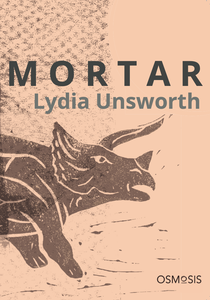 I was very excited to be given a review copy of Unsworth's new collection, since I'm a fan of her work. Thanks to Osmosis Press for letting me read it! From the start, this collection draws you into Unsworth's house - a contradictory place where it's both a place the writer wants to be and a 'chokehold'. The themes of home and the body were interwoven throughout this collection - with a sense of uncertainty and intimacy accompanying them. The home is given human-like characteristics: 'The skin of the window ready to pop', and 'The new couch...like some distended organ.' While the body is also something uncertain and sometimes uncomfortable: 'A lung smacks against a lung' and 'There is always a mouth where you didn't expect a mouth to be.' Aside from home, there was also a strong theme of a nature, especially nature in contrast with the urban. In Going to Seed for example, Unsworth says, 'like baby turtles that take to feet / under lamplight, too far from a sea / they will never now find.' This line portrays the sense of disorientation Unsworth appears to feel at all times - stuck between the enticement and power of nature and the artificial but oddly comforting constructed world of the city. It is something we all feel as humans - the disconnect with the natural world but also an affinity to our fabricated homes. Unsworth writes, 'I am the cobbles. Mortar. Mortar.' Throughout, I felt like her words were imprinting on me, as the world around us imprints on us. As Unsworth plays with words, images, feelings and expectations, she summarises it perfectly when she says, 'nothing is at rest.' Every page of this is a new pathway, leading us somewhere totally unknown, a labyrinth of things we thought we knew but in the end, we find ourselves seeing them in a new light or finding something different underneath. I recommend checking this out for yourself. You can grab yourself a copy at Osmosis Press Lydia Unsworth has published three collections of poetry: Mortar (Osmosis Press, 2021), Certain Manoeuvres (KFS Press, 2018) and Nostalgia for Bodies (2018 Erbacce Poetry Prize), and two pamphlets. Her latest pamphlet YIELD (KFS) and her debut novel Distant Hills (Atlatl Press) came out in 2020. Recent work can be found in Ambit, SPAM, Bath Magg, Blackbox Manifold, and The Interpreter’s House. |
Short reviews of books I've enjoyed and author interviews Archives
January 2022
Categories |
Member of the Society of Authors
Copyright © 2019 onwards · All Rights Reserved · Nikki Dudley
Proudly powered by Weebly
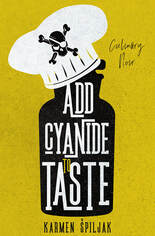
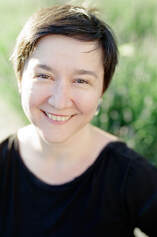
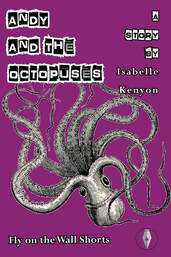
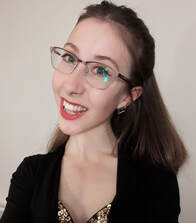
 RSS Feed
RSS Feed